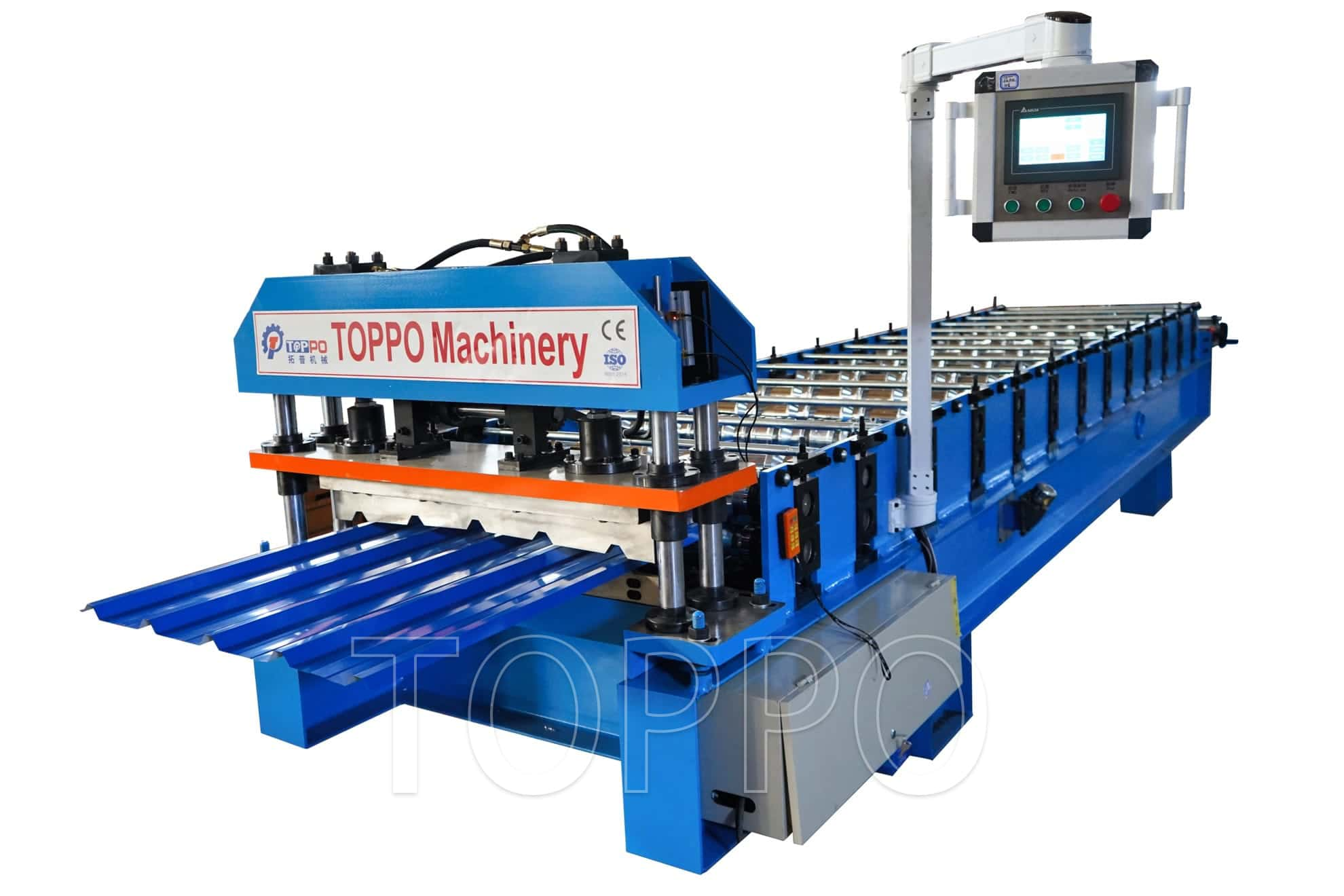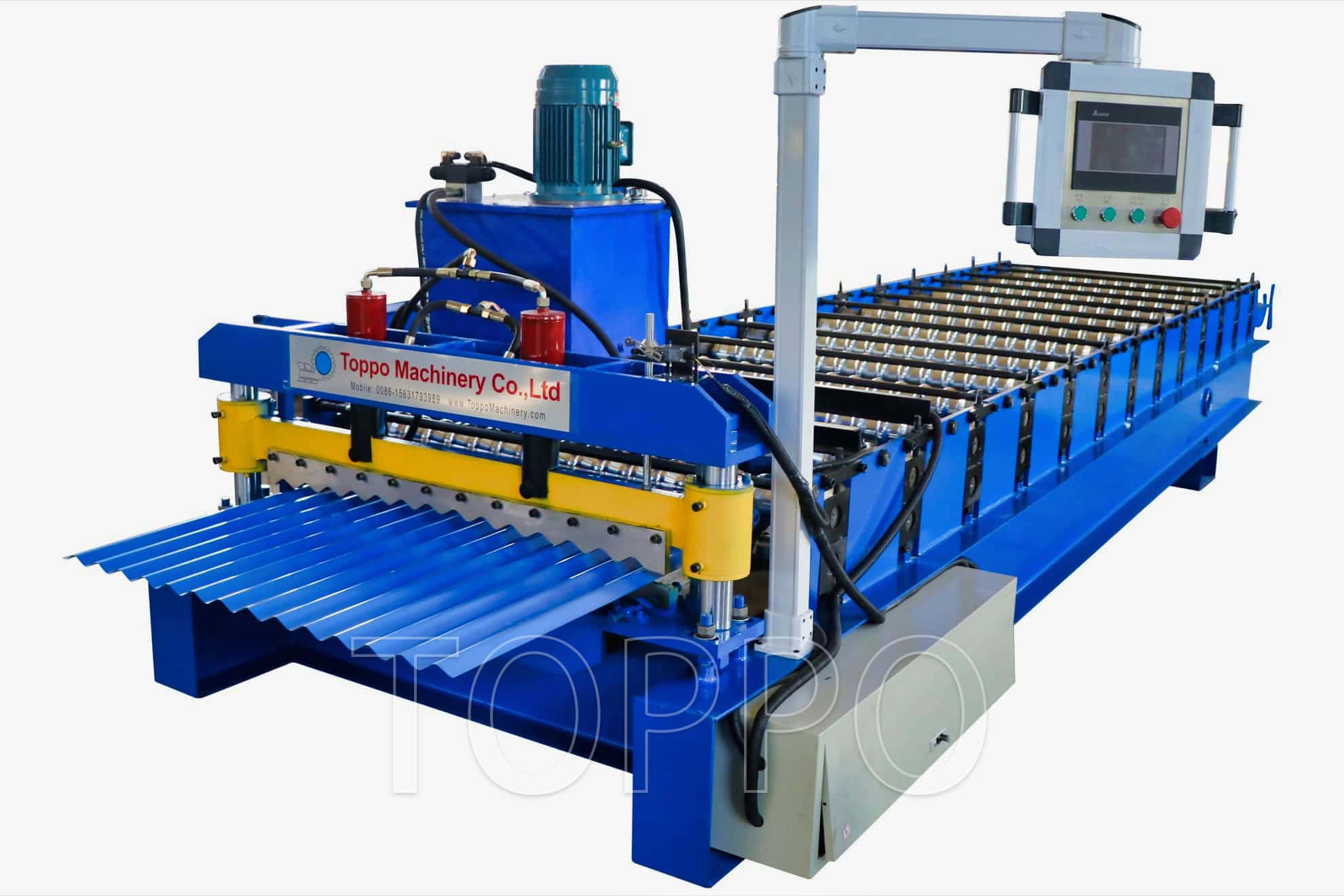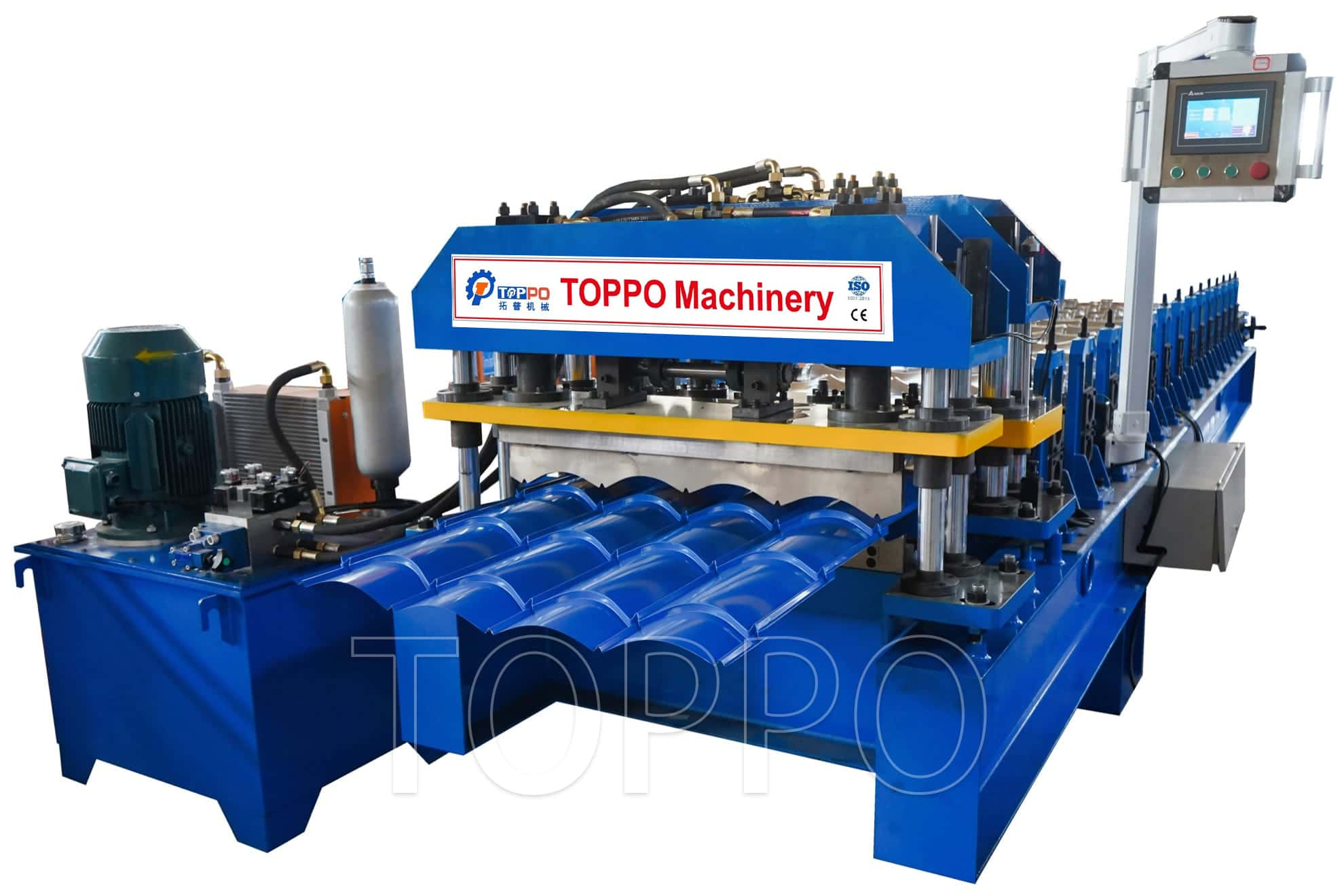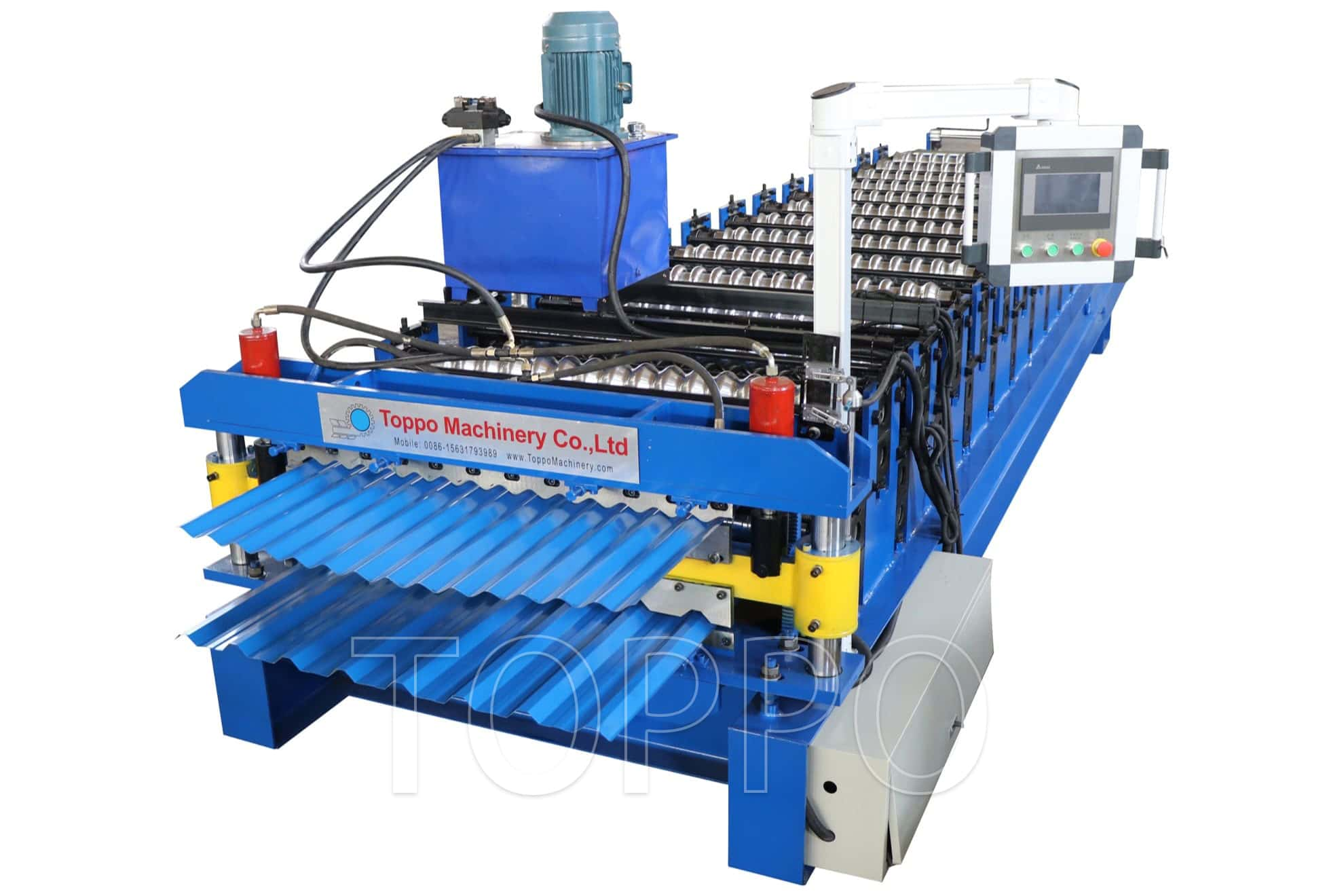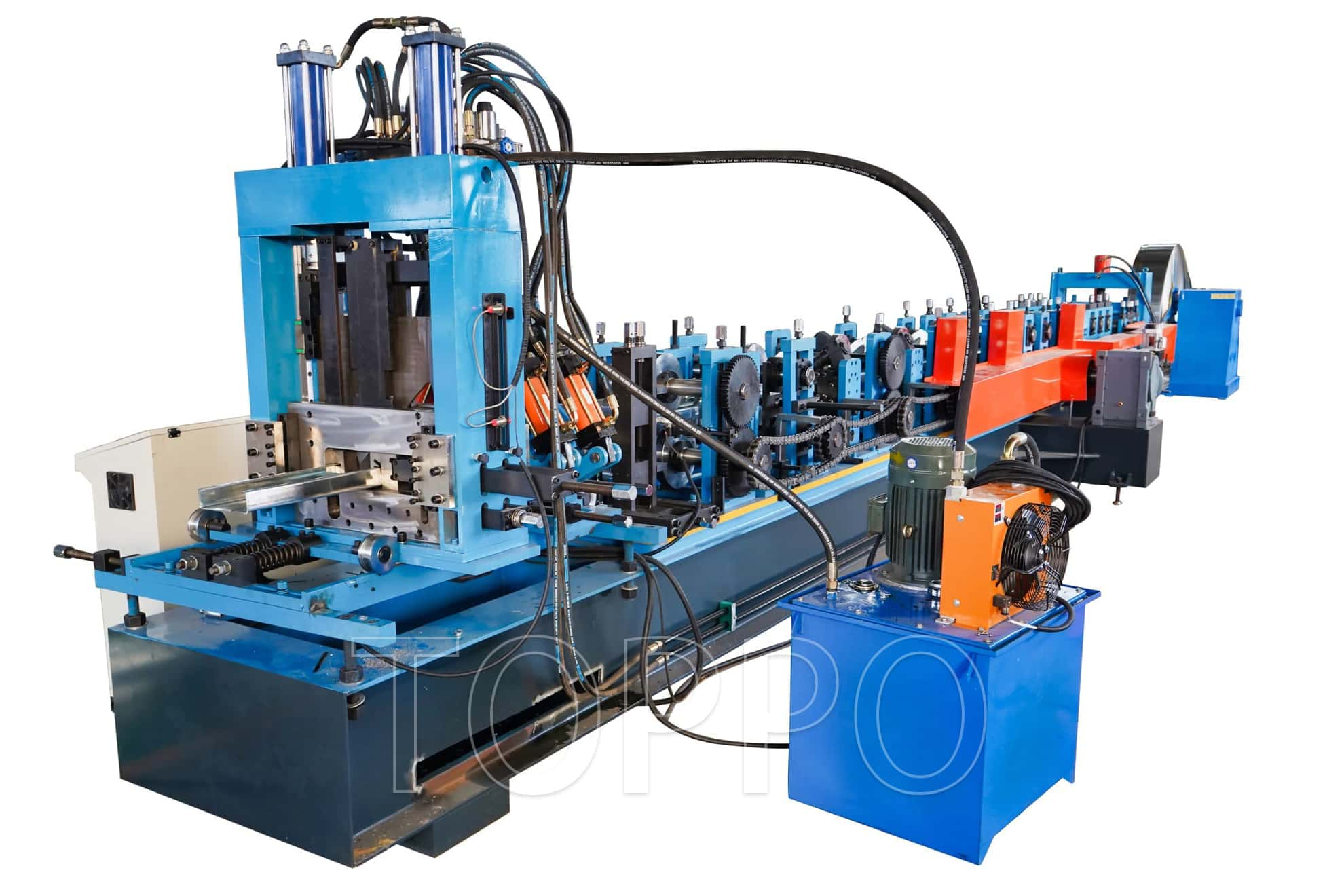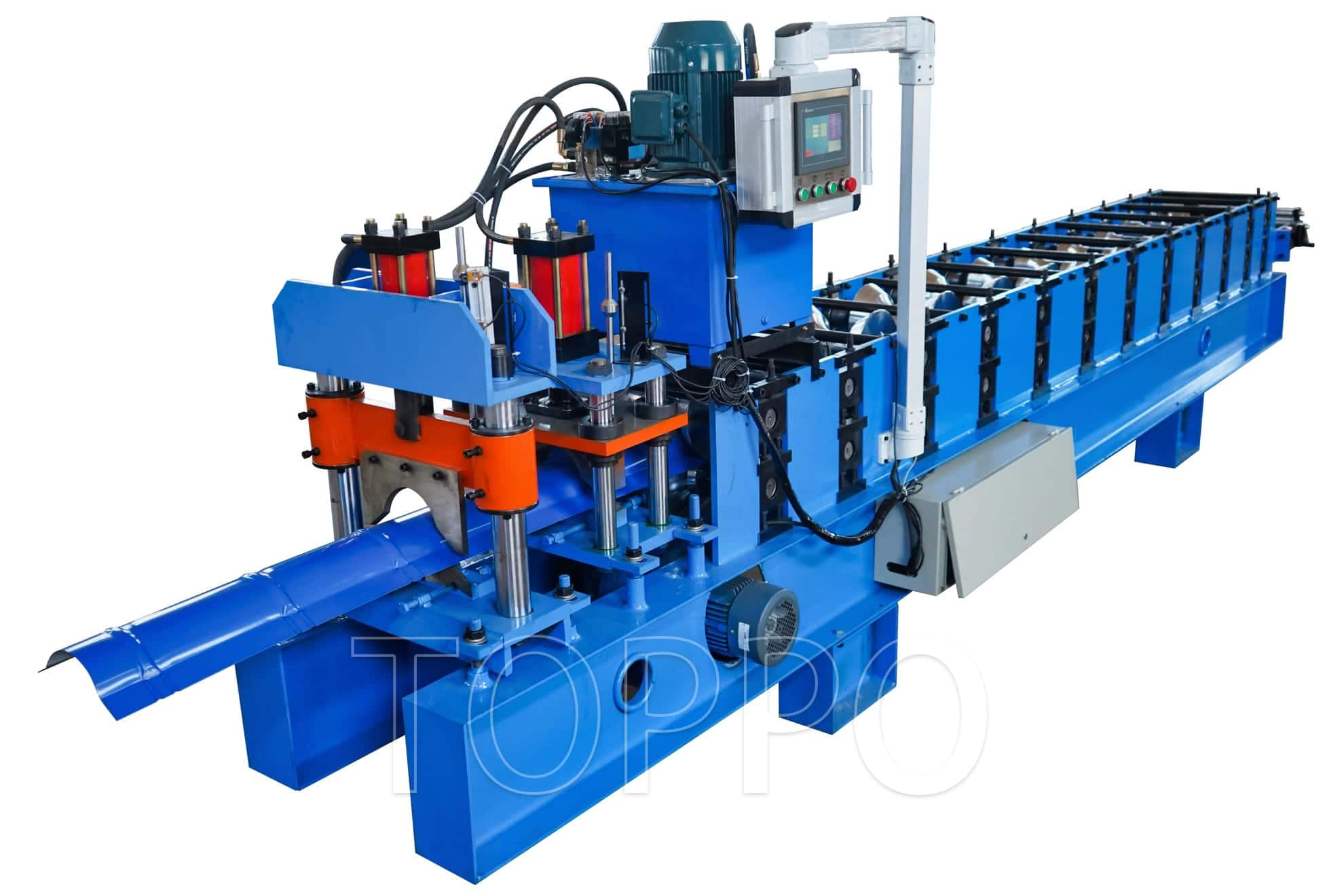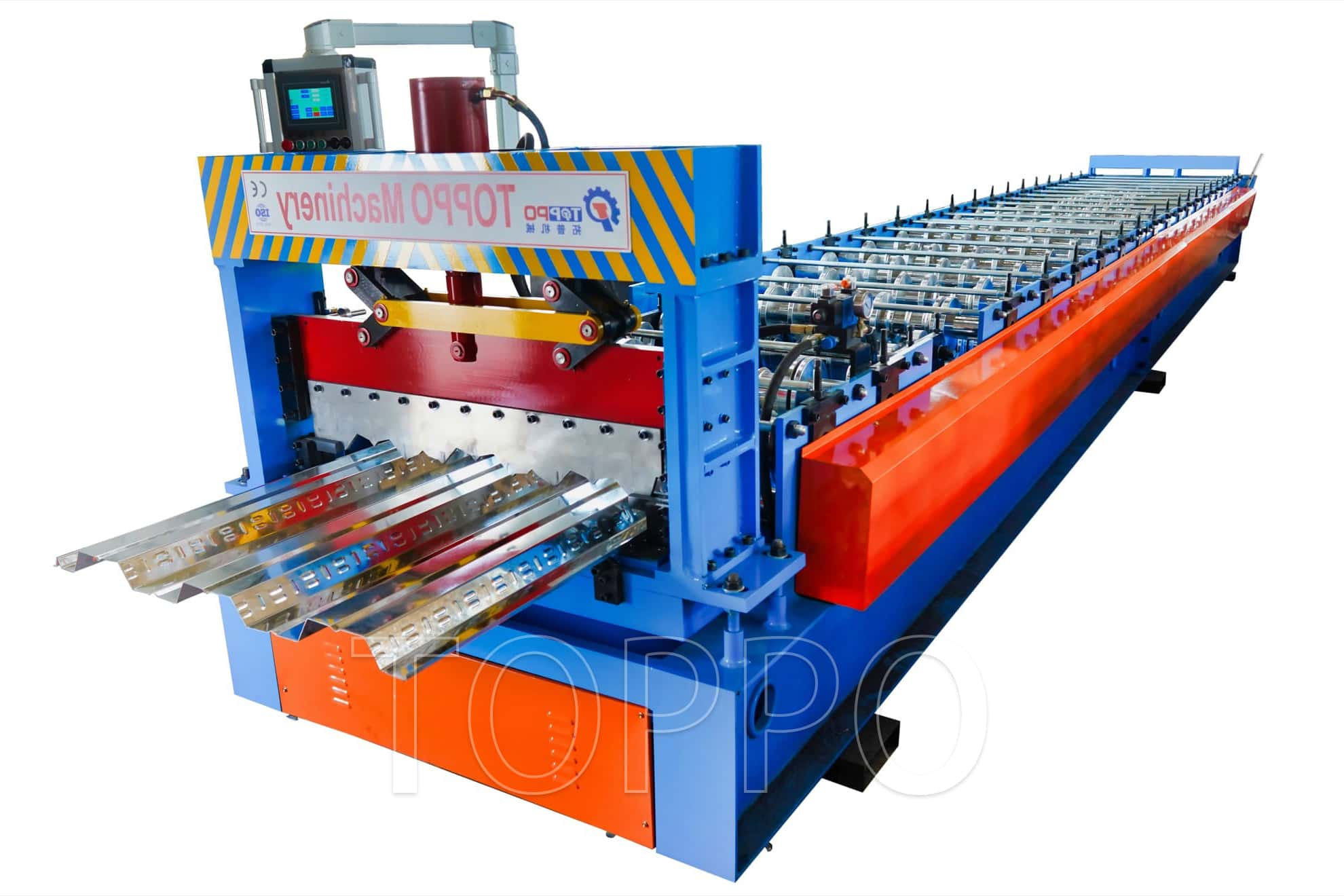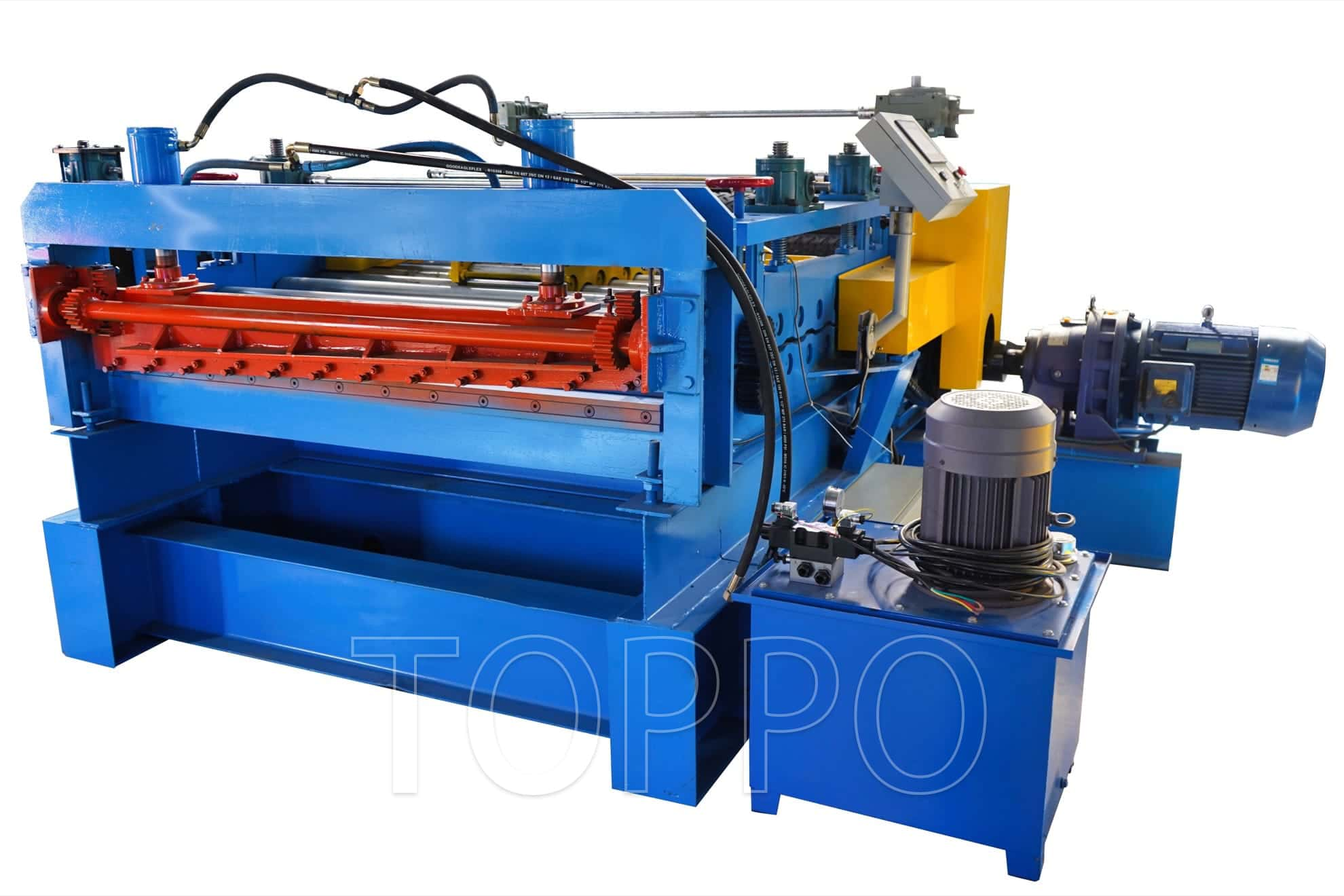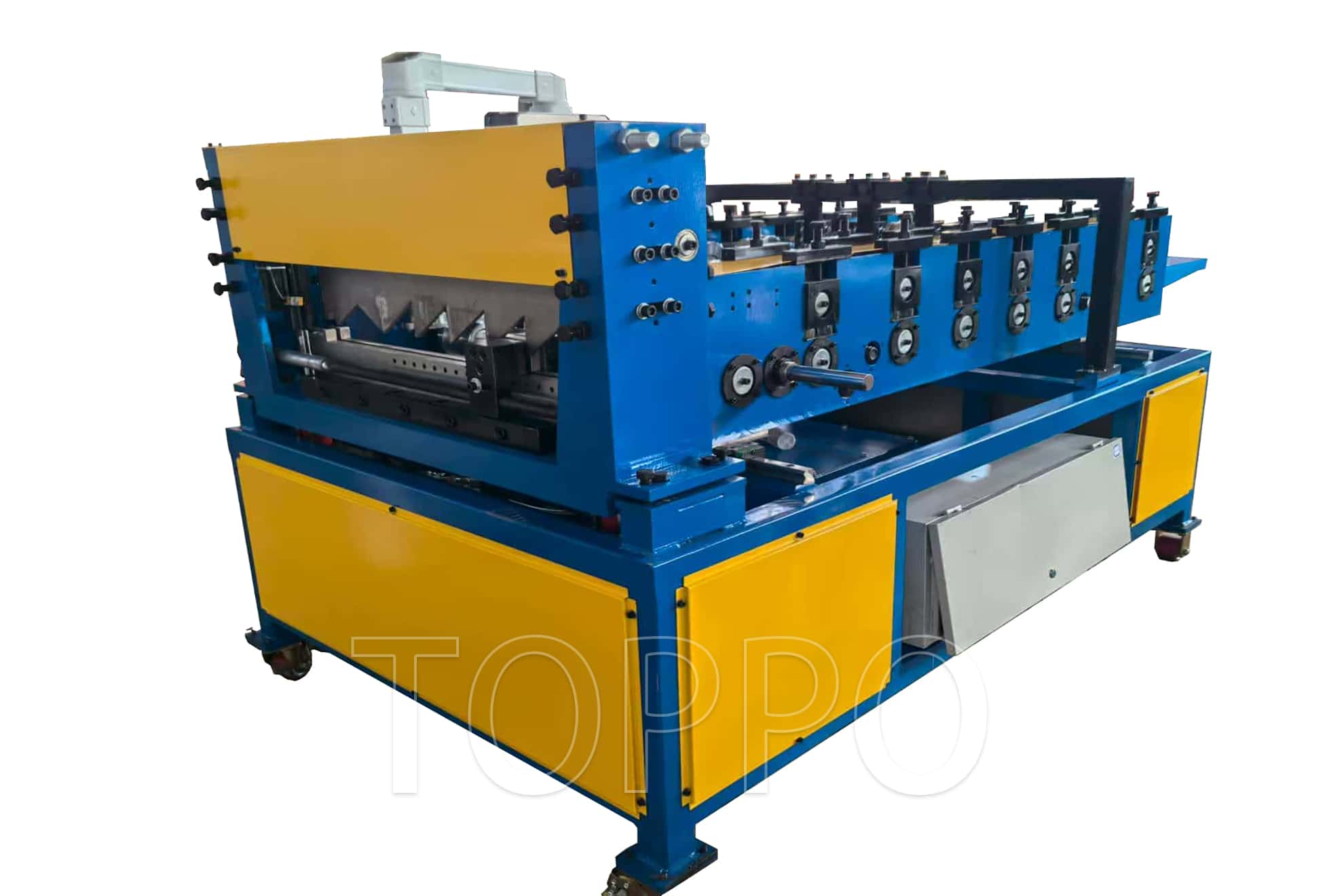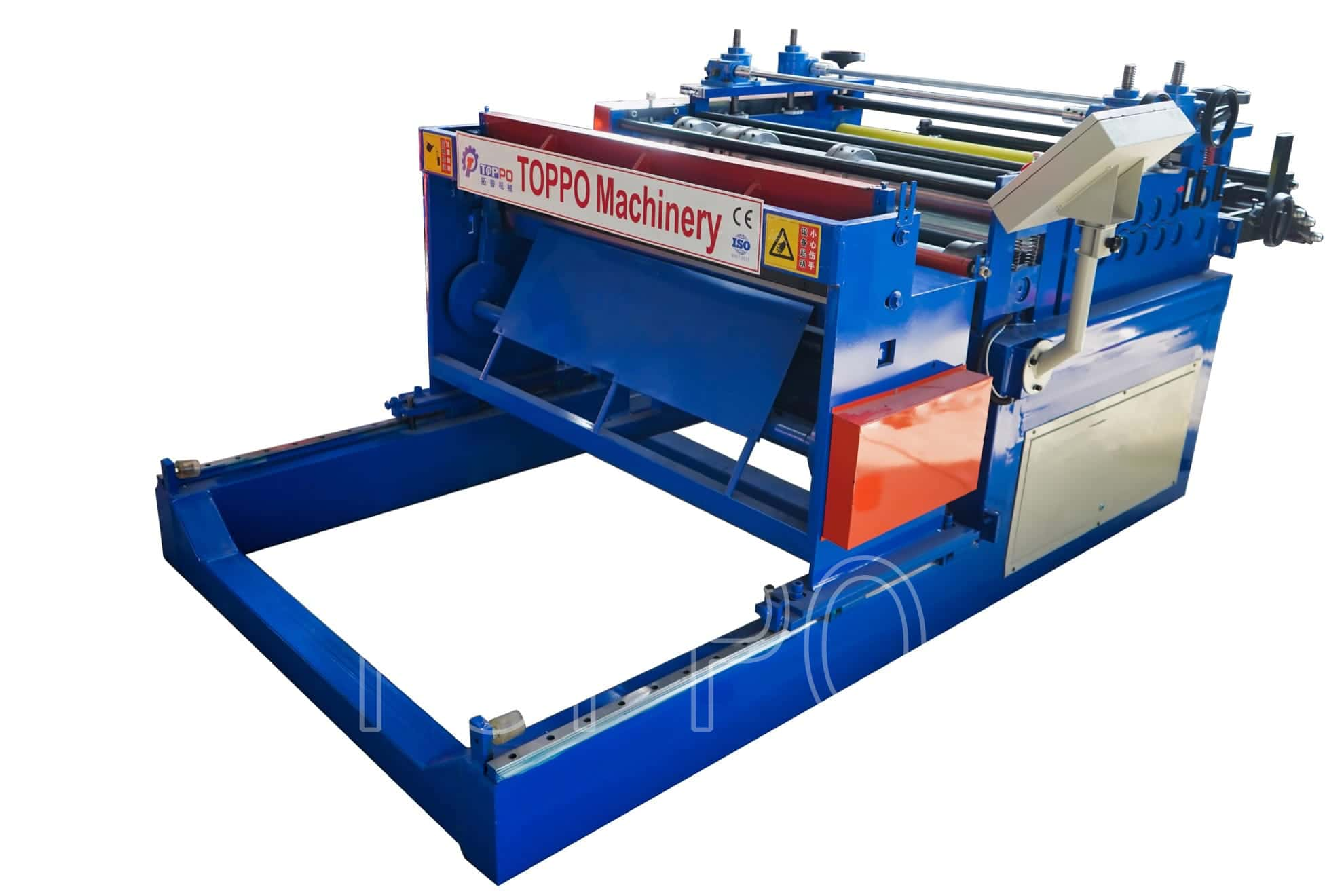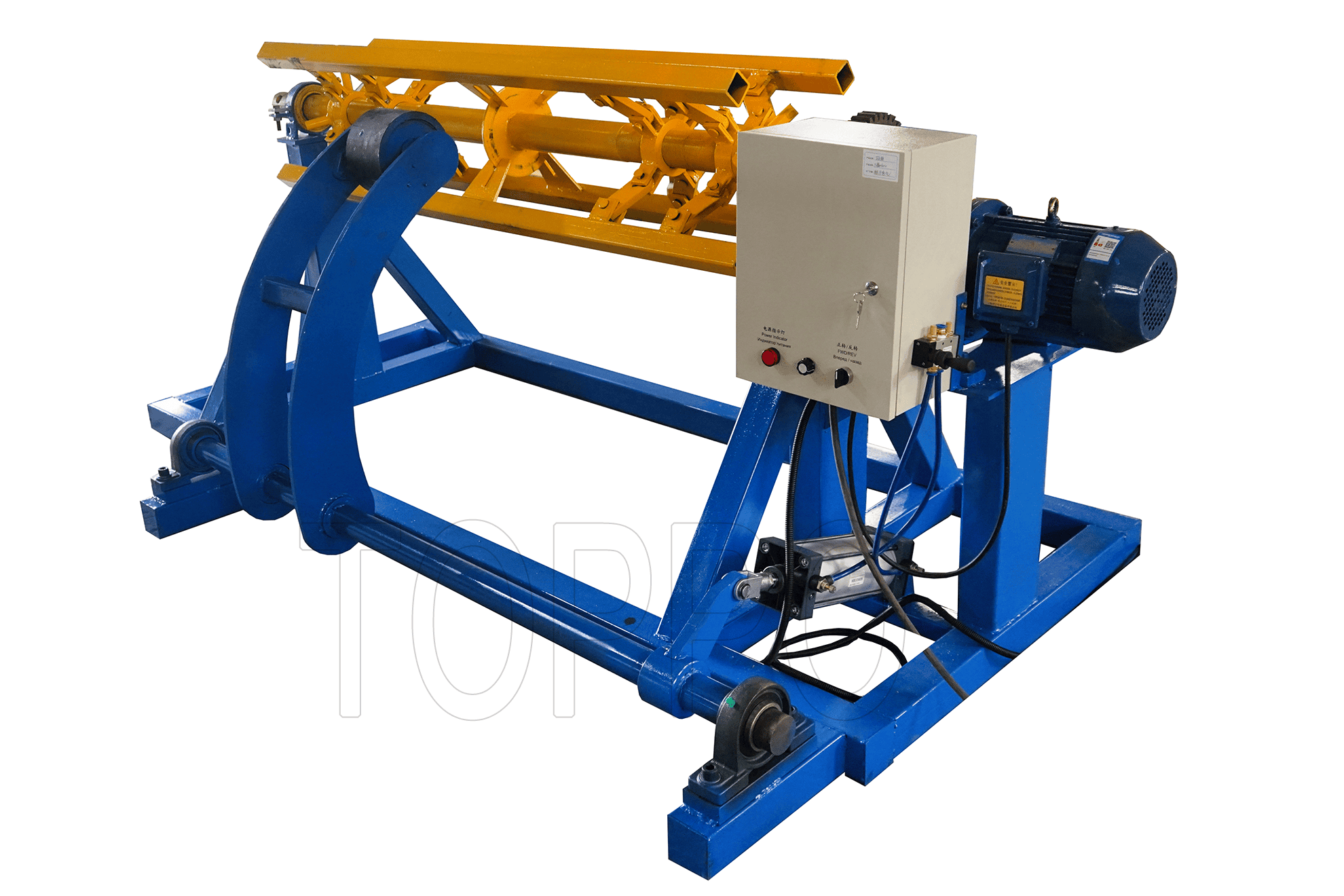- Trapezoidal Machine
- Corrugated Machine
- Glazed Tile Machine
- Double Layer Machine
- CZU Purlin Machine
- Ridge Cap Machine
- Floor Decking Machine
- Rolling Door Machine
- Fence Machine
- Embossing Machine
- Standing Seam Machine
- Cut To Length And Slitting Line
- Guard Rail Machine
- Decoiler And Stacker
- Stud And Track Machine
- Gutter And DownPipe
- Curving Machine
- Cladding Panel Machine
- Corollary Equipment
Mastering Roofing Sheet Quality: 4 Key Roll Forming Parameters Explained
Achieving high-quality roofing sheets on a Tr4 color steel metal roof trapezoidal roll forming machine requires rigorous control of four critical process parameters. Here’s a step-by-step approach, with key mistakes to avoid and a real production case study.
1. Steel Coil Thickness and Monitoring
Before running your roof panel making machine, measure and log steel coil thickness. Out-of-spec coils cause rippling, uneven weight, or early roof failure. Install inline sensors for continuous monitoring on each trapezoidal roll forming machine.
2. Roller Setup and Regular Calibration
Precision in roller setup is vital. Regularly check roller alignment with laser tools and recalibrate to manufacturer specs. Even minor misalignments on a Tr4 color steel metal roof trapezoidal roll forming machine create profile distortion or edge cracks.
3. Speed Control and Production Consistency
Automate speed regulation for your roof panel making machine. Stable, controlled speed prevents stretching, tearing, and ensures length accuracy across trapezoidal roll forming machines. Operators should monitor for speed fluctuations during shift changes.
4. Temperature & Lubrication Management
Maintain optimal lubrication and monitor die temperatures on the Tr4 color steel metal roof trapezoidal roll forming machine. Overheating or poor lubrication causes surface defects and faster tool wear. Use manufacturer-approved lubricants for best results.
Common Errors and How to Prevent Them
Ignoring coil thickness data trends
Misaligning rollers after maintenance
Running at maximum speed to boost output regardless of quality
Using incompatible lubricants
Real-World Example: Quality Recovery in Production
A European manufacturer switched to automated thickness measurement and invested in training for roller calibration on all Tr4 color steel metal roof trapezoidal roll forming machines. They cut defect rates in half and extended roller life by 30% in one quarter.
Conclusion
Mastering the four key parameters—coil thickness, roller calibration, line speed, and lubrication—means higher quality, less waste, and a stronger reputation for your roofing sheets. Regular training and monitoring are your best tools for sustainable improvement.
READ MORE:
How to Achieve Premium Roofing Sheet Quality: Focus on 4 Roll Forming Parameters
Quality Assurance: 4 Essential Roofing Sheet Parameters in Roll Forming
Roofing Sheet Quality: How to Control 4 Main Roll Forming Parameters
4 Critical Parameters That Impact Roofing Sheet Quality in Roll Forming
Understanding the 4 Key Parameters That Define Roofing Sheet Quality During Roll Forming
Expert Insights: Avoiding Common Mistakes in Roll Forming Machine Energy Optimization



